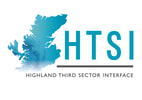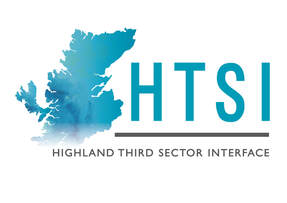Why it is Important?
Being responsible for other people’s money can be one of the hardest things about running a voluntary organisation. We all handle money everyday, but when it is held on behalf of a group of people you have to be sure that you have set procedures in place to show that you are handling it well.
This is particularly important for voluntary organisations which are not incorporated. Unincorporated voluntary organisations have no legal standing as an entity in their own right. As a result of this, any cash held by the organisation is actually the responsibility and more importantly the liability, of each of the committee members should something untoward happen.
‘Cash Handling’ is a term that refers to any monies received by an organisation regardless of whether it is a note, coin, cheque or bank transfer. Confusing today, but the term was first used when only coins and notes existed!
Being responsible for other people’s money can be one of the hardest things about running a voluntary organisation. We all handle money everyday, but when it is held on behalf of a group of people you have to be sure that you have set procedures in place to show that you are handling it well.
This is particularly important for voluntary organisations which are not incorporated. Unincorporated voluntary organisations have no legal standing as an entity in their own right. As a result of this, any cash held by the organisation is actually the responsibility and more importantly the liability, of each of the committee members should something untoward happen.
‘Cash Handling’ is a term that refers to any monies received by an organisation regardless of whether it is a note, coin, cheque or bank transfer. Confusing today, but the term was first used when only coins and notes existed!
Key points
- Any cash or cheques received should be kept safely and paid into the bank account at the earliest opportunity. Accumulating large sums, as well as posing a danger of theft, may exceed your insurance limits and also cost you money in earned interest.
- You should also spend some time thinking about the security measures you need to have in place within your organisation. This could include a cash box, a safe, who will be key holders, who is in charge of cash received if the Treasurer isn’t present etc.
- Whenever possible, you should make sure that at least two people take any significant sums of cash to the bank. It is also important that you always make sure that you conceal any cash or cheques you are carrying. You never know who could be watching.
- If you handle cash regularly, e.g. collecting at a weekly meeting, always try to make sure that you vary your routine. Don’t go to the bank at exactly the same time every week or tell anyone that this is what you are doing!
- It is also important that you have in place, and everyone knows about, a system for receipting income, a system for recording income and a system for dealing with small purchase from Petty Cash.
- All organisations are required to open a bank or building society account. There are a number of different accounts, or combinations of accounts, to suit the needs of every group. The most useful form of account is a Treasurer’s Account. Treasurer’s accounts are operated through a cheque book and a book of pay-in slips. These accounts are operated at branch level or through internet banking and are intended for clubs and societies. The account will provide access to very basic services such as a small level of interest, the ability to set up standing orders and to pay utilities etc by direct debit.
- To open an account, banks may require a copy of the constitution and minute of the meeting which established the organisation’s committee and elected its office bearers in addition to ID for possibly every committee member. All accounts of the group should be in the name of the organisation. One of the most frequent reasons for funding application being refused is that the name of the organisation is not the same on the constitution and the bank statement!
- All accounts opened by the organisation should have at least three signatories. This should ensure that the organisation can always manage to arrange for cheque payments regardless of holidays etc. Any two of the three being empowered to sign a cheque on behalf of the organisation. Normally, the signatories will be the Treasurer and other committee members.
Links for more information
OSCR, Office of Scottish Charity Regulator
Guidance and good practice for Charity Trustees
https://www.oscr.org.uk/guidance-and-forms/guidance-and-good-practice-for-charity-trustees/#2-3-financial-records-and-reporting
Voluntary Sector Archives
Record keeping toolkit
http://toolkit.voluntarysectorarchives.org.uk/sfg1k4kchs/introduction/
OSCR, Office of Scottish Charity Regulator
Guidance and good practice for Charity Trustees
https://www.oscr.org.uk/guidance-and-forms/guidance-and-good-practice-for-charity-trustees/#2-3-financial-records-and-reporting
Voluntary Sector Archives
Record keeping toolkit
http://toolkit.voluntarysectorarchives.org.uk/sfg1k4kchs/introduction/

